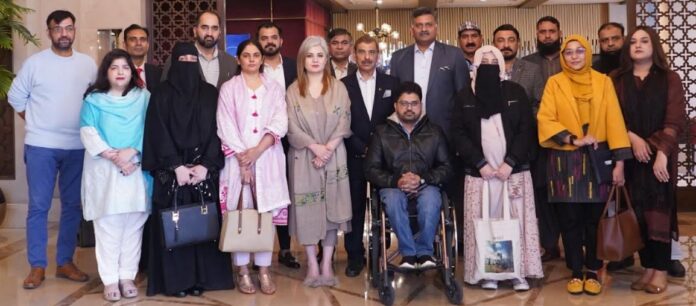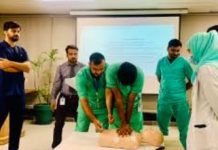LAHORE, DEC 18 /DNA/ – Save the Children in collaboration with UNFPA held a series of inception meetings and consultations under its programme of Strengthening Resilience and Reproductive Health Integration in Punjab. This is in line with Pakistan’s FP2030 commitments and national objectives, as outlined in the Council of Common Interests (CCI) Recommendations. Key government departments such as Department of Health, Primary and Secondary Healthcare Department, Women Development Department, Social Welfare Department, Rescue 1122, Punjab Police, other government stakeholders, and representatives from INGOs, NGOs and UN agencies participated in the consultations.
A Reproductive Health- Resilience Reference Group has been established with IRMNCH as Chair and Save the Children and UNFPA as Co-Chairs of the Working Group. The first meeting of the Resilience Reference Group was held on December 7 in Lahore in which members endorsed priority activities and way forward.
Muhammad Naeem, Director PQEI, Save the Children expressed optimism regarding the impact of these activities on the lives of women, children and communities who are the most vulnerable in humanitarian emergencies. He shared that Save the Children works with diverse partners to ensure women and girls affected by crisis have reproductive health options. He further added that UNFPA and Save the Children are dedicated to fortifying resilience and reproductive health integration through strategic alliances, and effective strategies to foster awareness and informed policy decisions.
A series of radio shows and public service messages on priority thematic areas of maternal health, reproductive health in emergencies, inclusive health services, gender-based-violence and women & girl empowerment were aired on radio as pilot in the first phase. Experts were invited for a discussion to raise awareness among the masses on their respective thematic areas. The radio campaign in Punjab reached over 15 million people in Rawalpindi, Lahore, Faisalabad, Sialkot, Multan, Sargodha, Bhawalpur, Narowal and their surrounding regions.

















